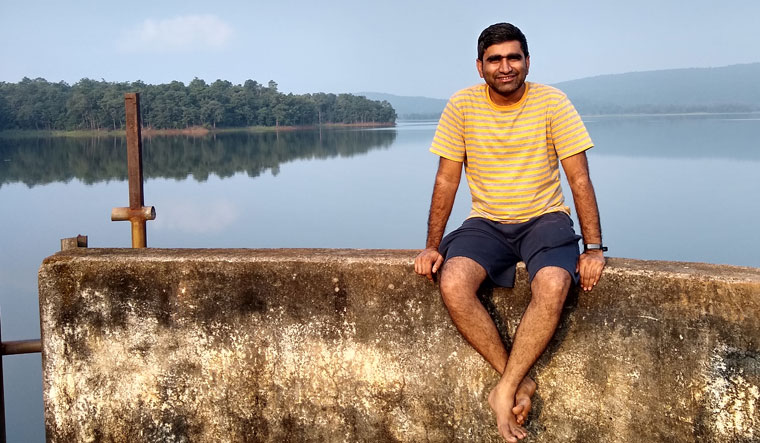Dr Yogesh Jain does not mince words as he analyses the impact of Covid-19 on health services in the country. “I fear there may be large-scale desertion by doctors and nurses from most public hospitals if the surge continues. We are going to have a tough time from August to October,” said Jain, cofounder of the Jan Swasthya Sahyog.
The situation at Thane, India’s worst Covid-19 hotspot with over 80,000 positive cases, seems to confirm Jain’s worst fears. “Fifty per cent of general practitioners in Thane have shut their clinics since the pandemic began,” says Sandip Malvi, deputy commissioner, Thane Municipal Corporation. The Maharashtra government recently issued an order making it mandatory for doctors to treat Covid-19 patients for at least 15 days in a month. Of the 25,000 private practitioners in Mumbai and Thane, only 2,000 have signed up for Covid-19 duty. Several civic and health bodies in the country have warned of action against doctors refusing duty, under the Epidemic Diseases Act, 1897. Eight doctors of the Patna Medical College Hospital were suspended in May for refusing Covid-19 duty.
“Some doctors are paranoid and are genuinely scared,” said Dr V. Mohan of Dr Mohan’s Diabetes Specialities Centre, Chennai. When the lockdown restrictions were eased and the clinics opened, a few of his doctors refused to resume duty. “They said: ‘The risk is too much. Even if you pay us full, we will not come. We are not going to come anywhere near the hospital,’” he said. “They simply refused. We have doctors who have elderly parents, grandparents or toddlers at home. If they get infected, the outcome can be grim.”
In Bengaluru, 25 hospitals and nursing homes have shut down because of staff shortage since March, according to Dr R. Ravindra, president, Private Hospitals and Nursing Homes Association. Dr Nagaraj H.N. of Deepak Hospital, a multispecialty hospital in Bengaluru, said that during the initial days of the outbreak, he managed to keep the morale of doctors and nurses high, and admitted all patients. “But within a month, doctors started getting scared and many ran away without even informing us,” said Nagaraj. “Even doctors who worked with us for 20 years started disappearing.” The 55-bed hospital that had 22 doctors and 67 nurses on its rolls till recently is now left with just three doctors and eight nurses.
Fear has gripped health care workers like never before. “Patients complain of health care workers hesitating to check pulse or perform physical examination,” said Jain. “In cities like Mumbai and Delhi, there is a wide gap between the proportion of people who require respiratory support and those who actually get it. Many doctors maintain a lot of distance from patients.”
Health care workers also have to deal with apathy and hostility. When an orthopaedic in Chennai died of Covid-19, local residents protested the cremation of the body citing that the virus could spread through the air. “The government should have intervened,” said Nagaraj. “When a person dies, the energy within the cells dies within two minutes and the tissues cease to function. The virus cannot survive in a dead body.”
Those working in Covid-19 wards often find themselves in precarious situations. A non-Covid-19 patient contracting the infection can prompt violence. At Hyderabad’s Gandhi Hospital, an on-duty doctor was attacked with an iron stool by the relatives of a deceased Covid-19 patient. After the family vandalised the hospital, 300 doctors who were treating Covid-19 cases refused to resume duty.
Preeti Sudan, health secretary of India, said that no government staff has refused Covid-19 duty. “They have gone beyond duty,” she said. “We are grateful to our doctors, nurses, lab technicians, surveillance officers, ASHAs and field staff for this exemplary selfless service.”
According to Dr Ranjan Sharma, president, Indian Medical Association, 93 doctors who were on Covid-19 duty have died as on July 13 due to the infection. Of the 1,279 doctors who tested positive, 771 were younger than 35. Because of the shortage of physicians, even specialists are being asked to treat Covid-19 patients.
“Medical personnel should not work for more than six hours in a PPE kit,” said Rohit Mundhada, a surgical oncology resident at Tata Memorial Hospital, Mumbai, who is currently admitted in an isolation ward. “But in India, they put in eight to ten hours in a Covid-19 ward, by choice, wearing PPE.” Many doctors are working tirelessly with scant regard for personal safety, he added.
That holds true for states such as Bihar. Besides health centres being heavily understaffed, the lack of protective gear and ventilators are causes for concern. Microbiologists and sample collectors are also contracting the infection. Doctors who die on Covid-19 duty have no health insurance coverage, said Dr Diwakar Tejaswi, a physician based in Patna. “They are middle-class people and their families have nothing to bank on,” he said.
Dr Vithal S. Salve, who holds an MD in physiology, said he suffered burnout and quit his job at Shaheed Hospital, a 150-bed maternity hospital in Dalli Rajhara, Chhattisgarh. Before the outbreak, Salve would visit his family in Maharashtra once a month. “From February 21 to June 23, I did not take a single day off,” he said. “The hospital was short staffed and overburdened. We were open 24x7, and during that period we had almost 200 deliveries a month, besides some emergency surgical operations. The working hours ranged from eight to 22 hours a day.”
Despite these circumstances, Nagaraj points out that doctors and nurses have a responsibility. “How will the common man survive if we shy away from our responsibility?” he asks, as he continues to hope that his doctors would return.



